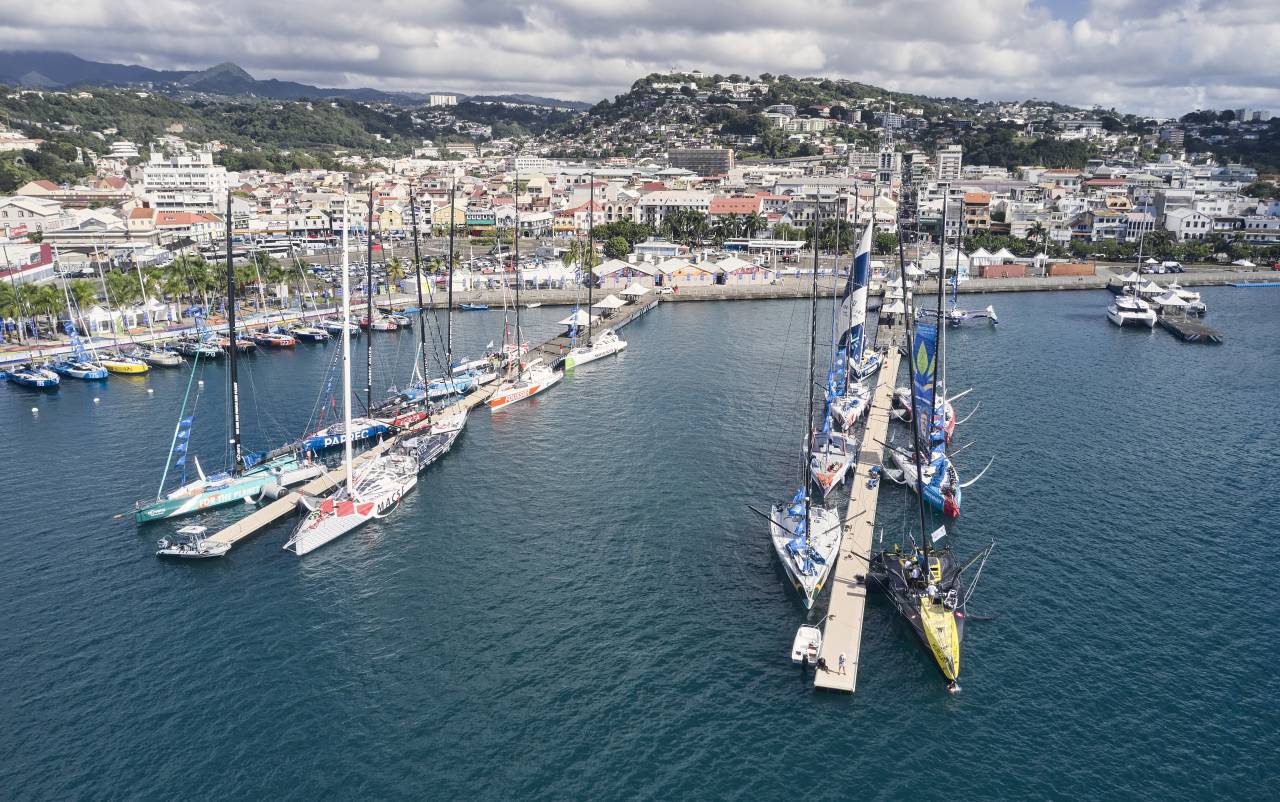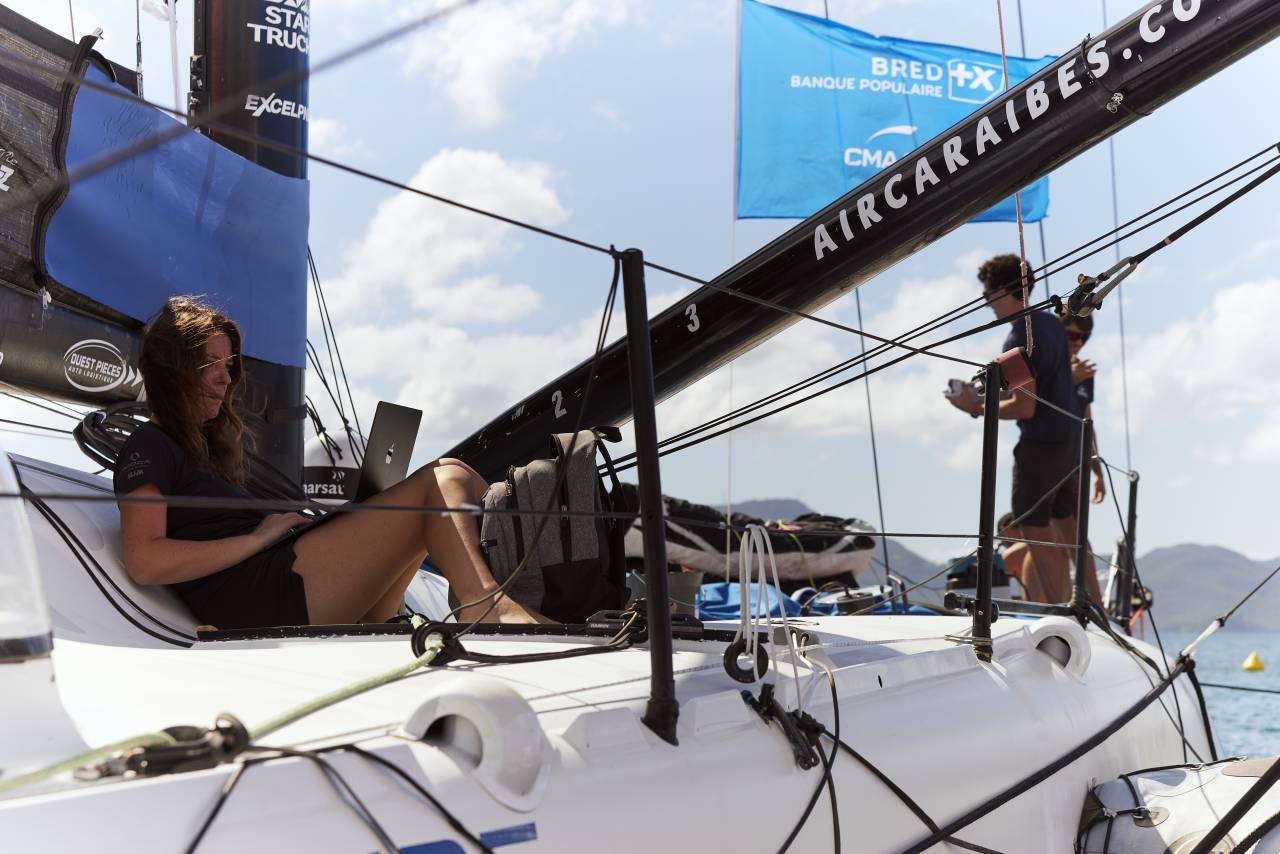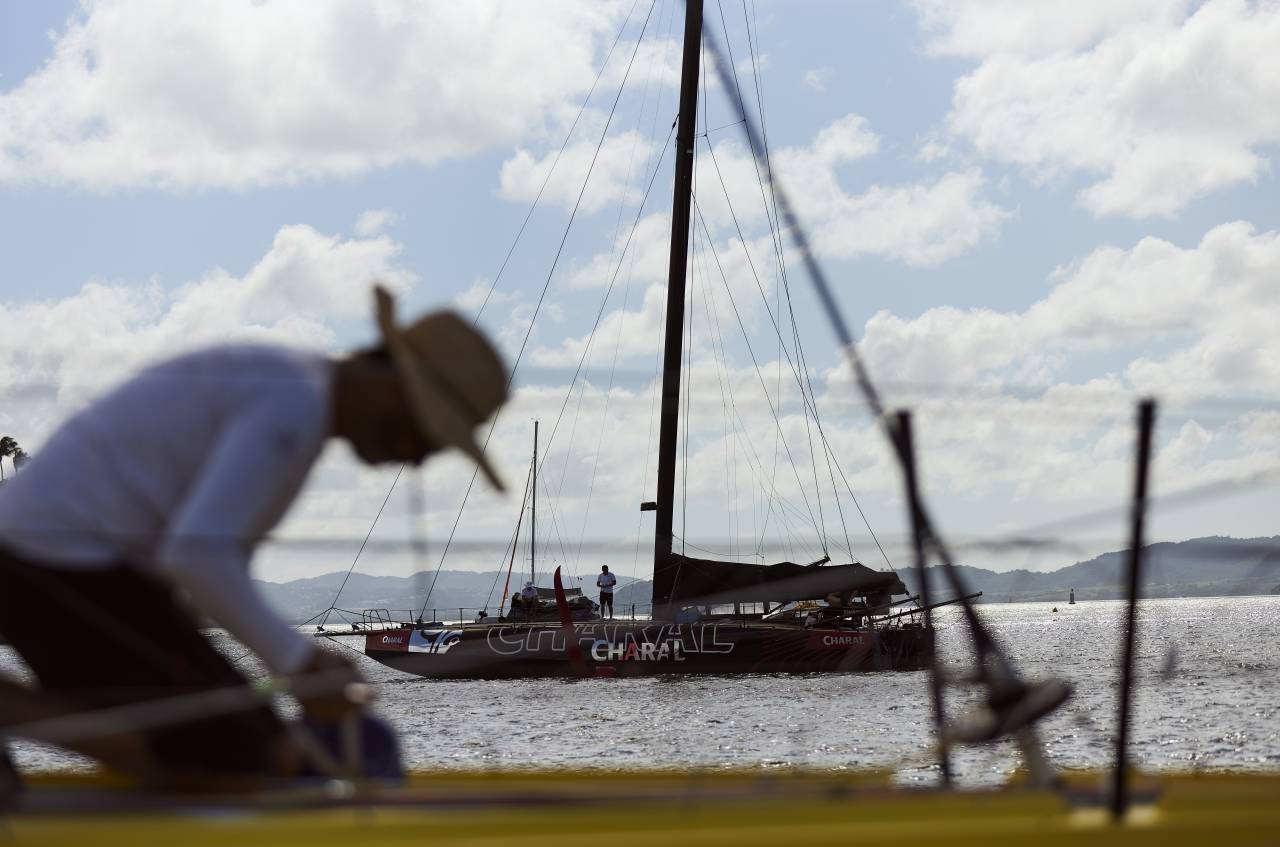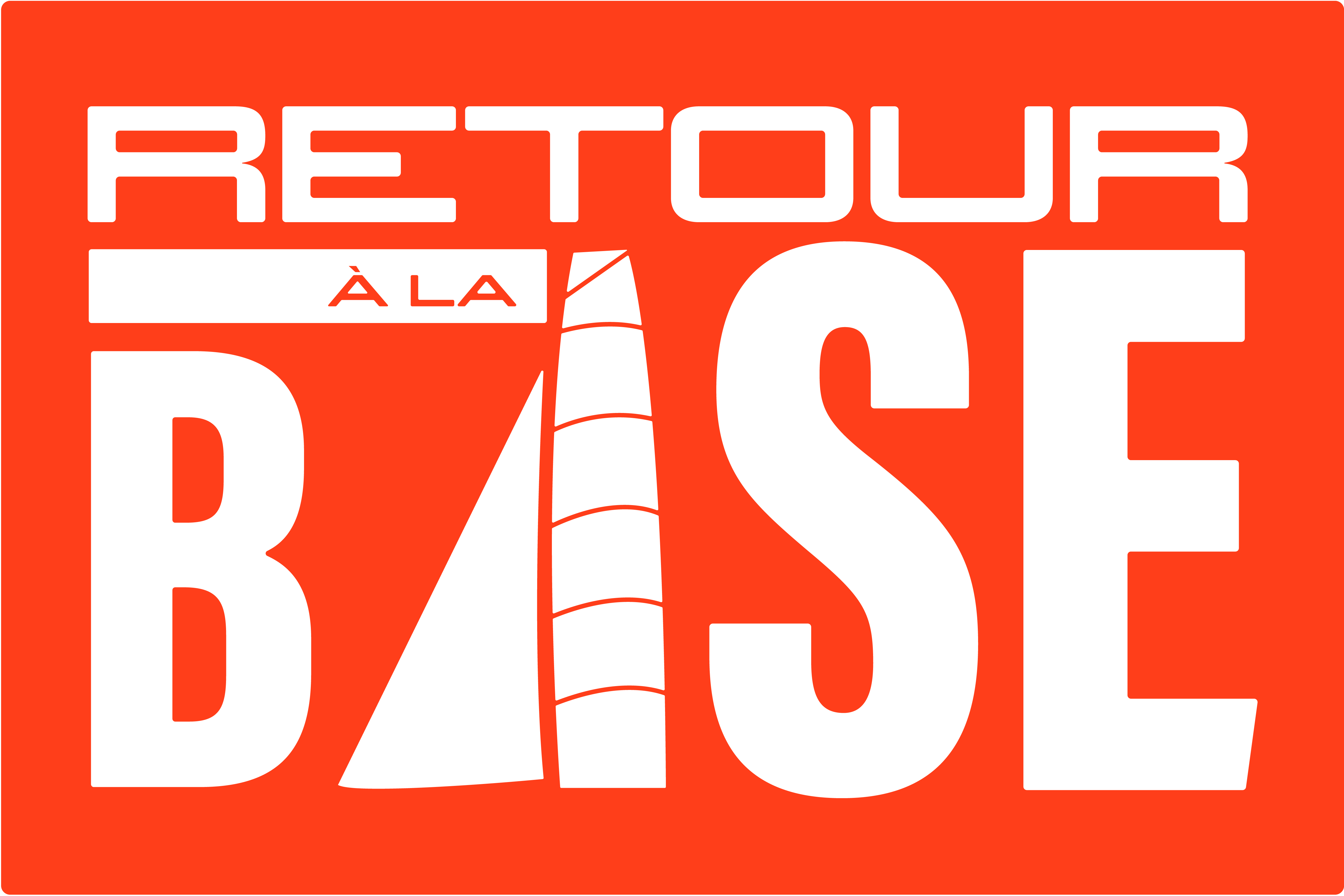A quick turnround is needed

Around the race docks in Fort-de-France the technical teams are racing against the clock to deal with the big and small problems
It’s 0600hrs and as the iconic Diamond Rock is bathed in the first morning glow of sunrise, the pontoons around Martinique’s Fort-de-France race hub are already busy. It’s like rush hour as the different IMOCA shore teams busy themselves, cracking on through the job lists. They are up and down the pontoons with all manner of equipment and machinery.
Because the outbound Transat Jacques Vabre Normandie Le Havre race was delayed by nine days the start of the Retour à La Base has been held off accordingly and so almost every team is facing some kind of race against time before the start time next Thursday 30th at midday.
Armies of riggers, technicians, laminators, electricians and of course the skilled individuals who can turn their hands to more than one specialisation, are hard at work from dawn to dusk in the hot Caribbean sunshine,
The first pontoon sees three preparateurs struggling to get a 63 kilos sail along the dock. It’s the replacement mainsail for Sébastien Simon’s Groupe Dubreuil which ‘exploded’ early on their northern routing. “We have bought an older mainsail from the previous owners, 11th Hour. It was in storage in a container in Quimperlé,” explains Marion, team manager of the Vendée skipper’s team. “We were lucky to have this simple solution. We have had time to have it painted black, but not to brand it in our colours, so we will be in stealth mode on this return race.”
And of course having the airline Air Caraibes as a sponsor helps. “For sure that simplified the logistical aspects. We are a small team, only put together in August, so commando moments like that count a lot in learning to work effectively together.” Says the team manager.

On the next pontoon it’s busy on Paprec Arkéa. Damien is layering carbon cloth on a strategic area of the boat reinforcing an area which showed signs of suffering on the way out. The boat, launched only seven months ago, has had a tough test on the outbound transatlantic on which they took second place with skipper Yoann Richomme.
“To get a good result, you had to push hard. We knew we would have work to do when we arrived,” confirms the laminator and composites ace who brought his swimmers, “……just in case we get the work done ahead of time.”
On the next pier there are bubbles rising from beneath a familiar black and yellow IMOCA. In 30 minutes, the whole hull of Alan Roura's HUBLOT has been scrubbed completely. To be fair, the water temperature is more conducive to diving and cleaning than in Lorient at this time of the year. But the so too does the warm water encourage much more marine growth.
On Devenir Violette Dorange’s IMOCA, Camille is working on a halyard. A Breton sailor who has come to the French Antilles for a couple of years has been drafted in as reinforcements to strengthen the team from Port-La-Forêt.
Even though there is no major damage on board the boat, there are many little jobs to be ticked off the lost before the boat can go back racing safely and more particularly to set up the boat for solo sailing, Violette’s first time alone across the Atlantic.
On board Pip Hare’s Medallia progress through the job list is steady. Most urgently the British skipper’s mainsail has been to the ‘sail hospital’. “We are getting through the different things and have nothing serious. Our aim is to have everything done by Monday so Pip can have her boat back and is not stressed.” Says technical director Joff Brown,
Meantime, Charal has been to sea to make some trials…but what, exactly? “We are not at liberty to say, but we will be ready to take our revenge,” offers a member of the team.

And then there is the “waiting room”, at the head of the pontoons. That is where the teams who are still expecting their duos imminent finish. There were still five IMOCAs at sea but by the end of Friday that should be just one, Lazare which was the victim of a collision with a UFO on the first day of racing. They were in Lorient for a week making repairs and today have just over 1000 miles to the finish line. Their ETA is the 28th or 29th. “We are well set up with a local supplier for a yard if we need it and if we need specific things.” Says team manager Axel.
Their team should arrive at the weekend, delaying their departure from France as late as possible so that they can bring any last minute spares or equipment.
